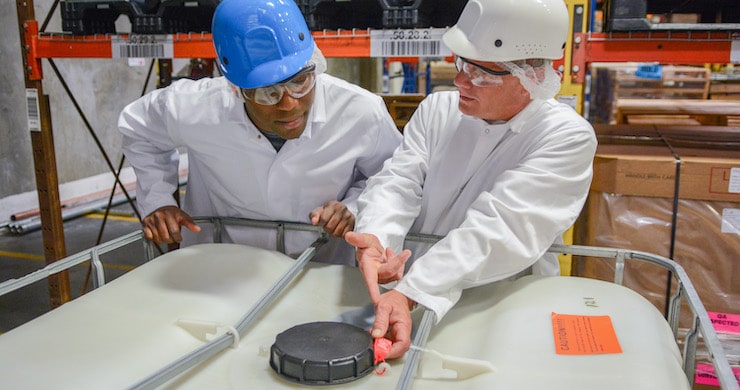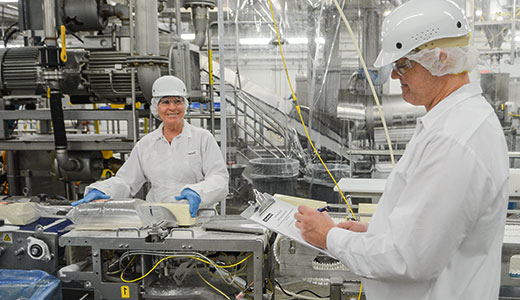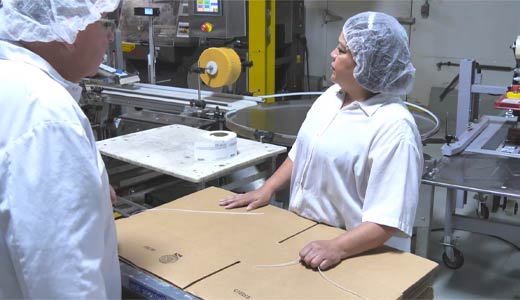Posted by Zosi Team

Under the Food Safety Modernization Act Mitigation Strategies to Protect Food Against Intentional Adulteration (21 CFR Part 121) regulation, commonly referred to as the IA Rule, covered facilities must develop and implement a food defense plan. The food defense plan protects their production’s actionable process steps from acts of intentional adulteration intended to cause wide-scale public health harm. While all personnel working at these most vulnerable steps are required to receive food defense awareness training (21 CFR 121.4(b)(2)), facilities must also have Food Defense Qualified Individual/s, or FDQI/s, to perform key activities required by the regulation. In this blog, we explore what exactly an FDQI is, their specific responsibilities, and how to achieve FDQI certification.
What are an FDQI’s responsibilities?
The FDQI is responsible for preparing your facility’s Food Defense Plan, conducting vulnerability assessments, identifying and explaining mitigation strategies, and conducting reanalysis as required by the rule. Because of this, FDQIs must possess a thorough understanding of the IA Rule, how to implement its requirements, and how to successfully train employees to carry out related procedures. They must also be ready and able to monitor and evaluate these steps for continued improvement.
FDQI Training Requirements
Again, while most employees at a food manufacturing facility must complete food defense awareness training under the FSMA IA rule, FDQIs need a much higher level of training. You can meet this requirement without completing any FSPCA-approved courses by providing documentation that proves adequate training or on-the-job experience to perform the activities.
The IA Rule requires an FDQI be trained to appropriately perform the following activities:
Vulnerability Assessment: Key Activity Types (KAT) Training is the easiest method of vulnerability training. This training teaches FDQIs to identify KATs and actionable process steps as a crucial part of vulnerability assessments conducted while building a company’s Food Defense Plan. If a more thorough method of vulnerability assessment is desired, FDQIs may optionally choose to learn the fundamental element analysis method through the instructor-led FSPCA IAVA course offered by the Food Protection and Defense Institute. The IAVA course is currently offered in an online format due to COVID.
Identification and Explanation of Mitigation Strategies: This training teaches FDQIs how to identify and explain mitigation strategies for the actionable process steps. Implementing mitigation strategies is essential to prevent inside attackers from compromising food sources.
Preparing the Food Defense Plan: This training teaches FDQIs how to prepare a food defense plan including all of the required parts: vulnerability assessment, mitigation strategies, and management components.
Reanalysis: This training teaches FDQIs the requirements for reanalysis is required and how to determine when reanalysis should be conducted.
Become an FDQI with Zosi and FPDI
Zosi and the Food Protection and Defense Institute at the University of Minnesota offered a full solution for your FDQI certification needs. Begin with our Food Defense Manager course, where you’ll meet the IA rule training requirement for vulnerability assessment by key activity types, identification and explanation of mitigation strategies, preparation of the food defense plan, and reanalysis. Instructor-led training for the three fundamental element vulnerability assessment (IAVA training), including hybrid assessment, is available through FPDI. With these elements at your disposal, you are well on your way to FDQI status!



 Food Defense Manager
Food Defense Manager
 Food Defense Supervisor Awareness
Food Defense Supervisor Awareness
 Food Defense in 15
Food Defense in 15

